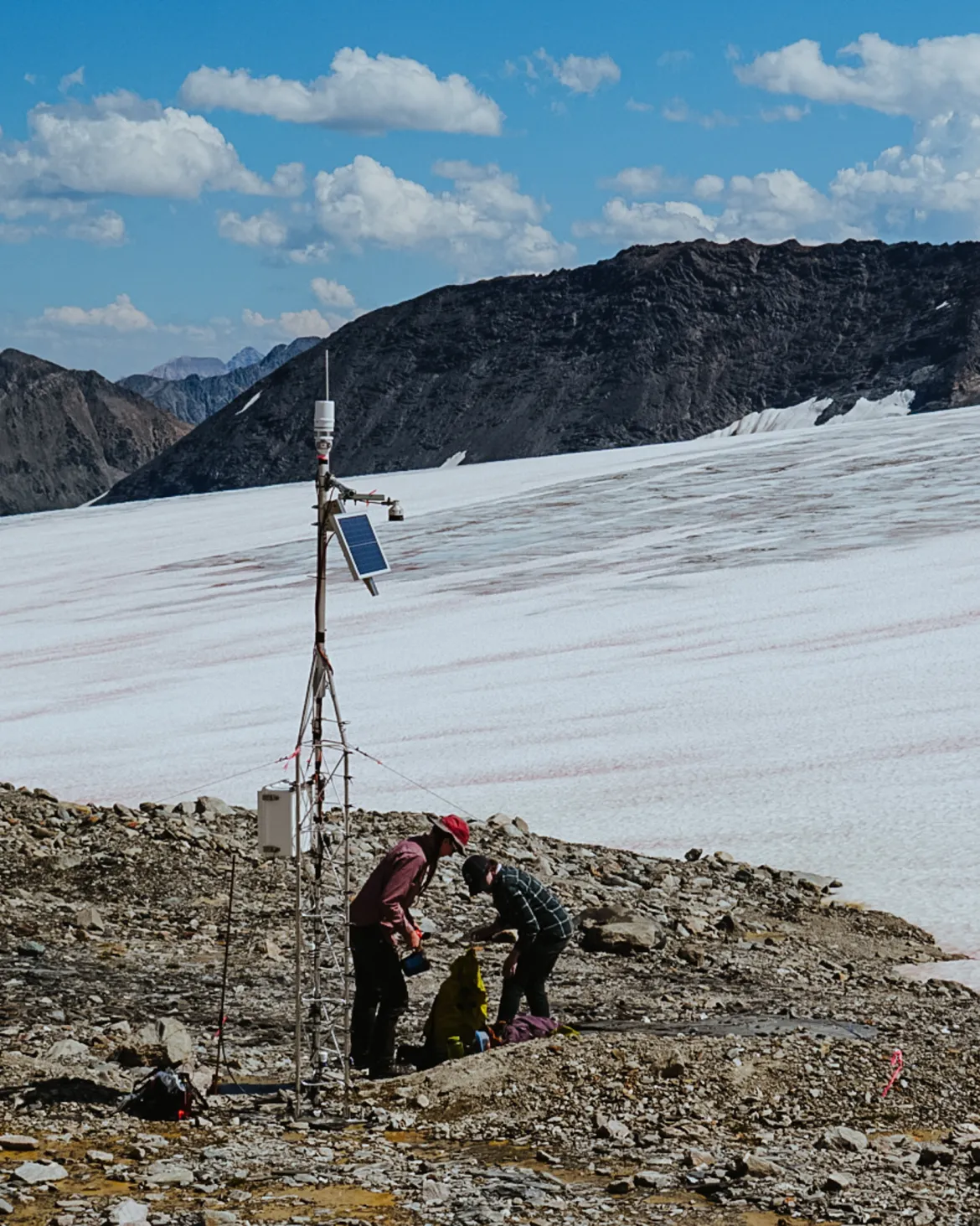UNBC scientists awarded matching federal-provincial grants to further innovative research projects
More than $860,000 in infrastructure funding will advance UNBC research on natural resources, food security and mountain snowpack monitoring.

Prince George, B.C. – From expanding understanding on the impacts of natural resource extraction, to enhanced food security and sustainable land use, to improved mountain snowpack monitoring, three UNBC researchers are advancing knowledge in areas vital to a sustainable future in northern B.C. and beyond.
The three faculty members received grants totalling $868,500 through the Canada Foundation for Innovation’s (CFI) John R. Evans Leaders Fund, the B.C. Knowledge Development Fund (BCKDF) and in-kind contributions from other partners.
"The B.C. Knowledge Development Fund invests in research infrastructure and develops the workforce needed to grow our economy and make life better for British Columbians,” said Ravi Kahlon, Minister of Jobs and Economic Growth. “The B.C. government is supporting innovative cutting-edge research that enables the establishment of new companies and commercialization in sustainable resources, life sciences, food security, and climate resilience, boosting economic growth and diversification across B.C."
Together, the matching funds will build research infrastructure, including laboratories and specialized equipment.
“The CFI JELF and BCKDF awards do more than fund equipment and expand research capacity, they enable discovery,” said UNBC Interim President Dr. Bill Owen. “UNBC researchers are leading projects that have regional and global significance, and this funding bolsters their efforts to push the limits of knowledge and generate solutions to these complex societal challenges.”
Engineering Associate Professor Dr. Wenbo Zheng received $312,393 in funding for the creation of a dedicated rock mechanics laboratory at UNBC to support his natural resource research. Zheng will work to bridge knowledge gaps crucial to addressing the challenges associated with the sustainable utilization of energy resources from deep within the earth. He points out, “There is a lack of laboratory testing data on deep rock formations needed to develop the sophisticated numerical models that are critical to the safe and efficient utilization of energy resources in geological formations.”

Ecosystem Science and Management Associate Professor Dr. Lisa Wood (shown in photo at left) and her colleagues Drs. Theresa Adesanya and Michael Preston received $320,664 for a project investigating the intersection of food security, forestry and mining reclamation in Canada’s North in the face of climate change.
The grant will provide equipment to augment the I.K. Barber Enhanced Forestry Laboratory with the infrastructure needed to develop research programs focused on sustainable resource management.
“The equipment purchased with this funding will directly support research on how to improve food security in northern regions of B.C. and Canada where access to food-related resources is often low,” said Wood.
“Research will focus on how climate change and resource extraction activities impact food supplies over time, and how communities can become more sustainable and self-reliant in food production.”

Environmental Geomatics Associate Professor Dr. Joseph Shea was awarded $235,443 to fund a network of snow monitoring observatories that will be installed in the headwaters of the Fraser, Columbia and Peace River basins. (Photo at left shows student researchers working Shea's field site at Conrad Glacier in the Purcell Mountains south of Golden.)
“We don’t know nearly as much about our mountain snowpacks as we should,” says the UNBC scientist. “What happens in the mountains doesn’t necessarily stay in the mountains: changes in mountain snowpacks will have significant impacts on downstream ecosystems and communities.” The equipment will support Shea’s Snow in Mountains project which aims to increase understanding of mountain snowpack accumulation and melt, contribute to improved water supply forecasts, and support climate change impact and adaptation studies in communities and provincial parks.
“These projects reflect UNBC’s commitment to advancing research excellence,” says UNBC Vice-President Research and Innovation Dr. Paula Wood-Adams. “Investing in research infrastructure not only empowers UNBC researchers to pursue bold ideas but also creates hands-on learning opportunities that inspire curiosity in the next generation of innovators.”
The CFI JELF is designed to help Canada’s post-secondary institutions attract and retain top researchers to propel innovation and build resiliency across the country.
“This infrastructure funding support enables UNBC’s researchers to launch and sustain their research programs,” says UNBC Research Project Officer Jacqueline Dockray. “It’s instrumental in helping their discoveries translate into real-world impacts in a timely manner for the benefit of all Canadians.”